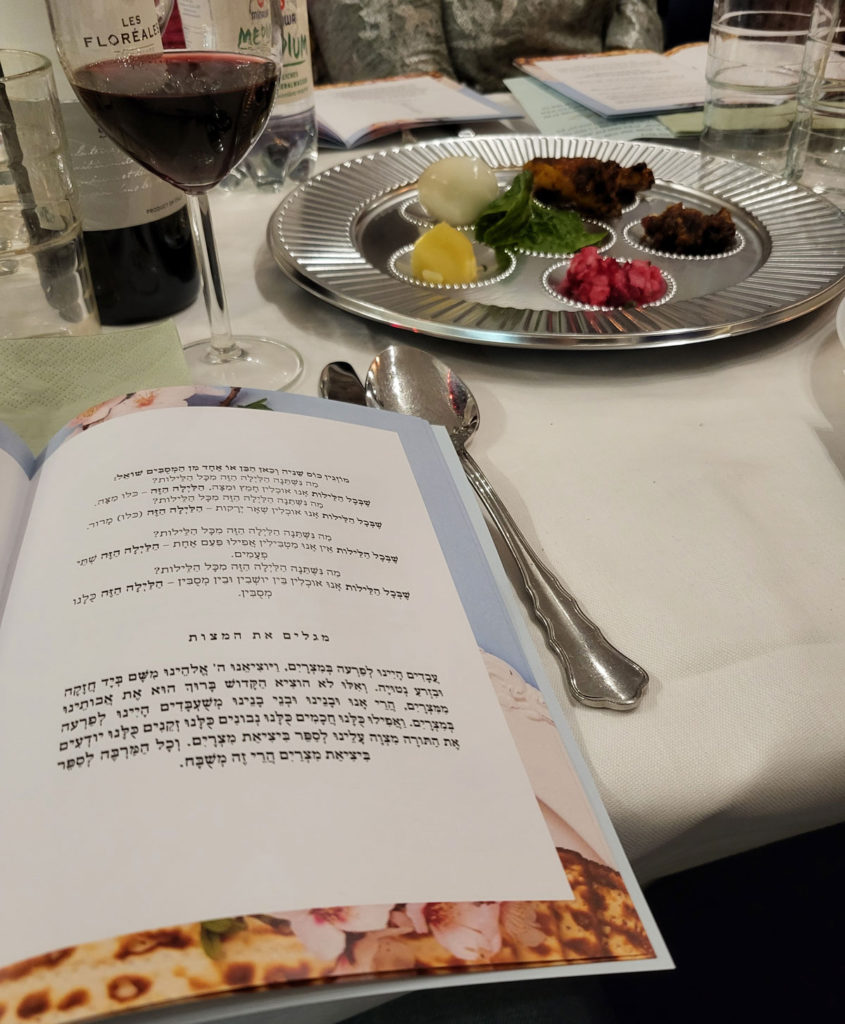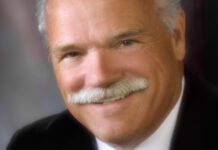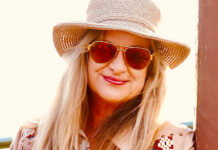It is an uncommon occurrence in my own life to find myself in a situation where I become distinctly and acutely aware that I am—in that moment—a minority. This once occurred when I attended a young adult LGBTQ organization in Long Beach, where black people were often in the majority. However, I recently had the pleasure of being invited by an Israeli friend to a Seder, a meal which celebrates the beginning of Passover (known as Pesach in Hebrew) at an event hosted by an Israeli expat association in Germany’s capital. Curious about the celebration, I agreed.
The location was only revealed to us a few days prior, and was dishearteningly marked by an armed police presence. Finding the venue was characterized by whispers and secrecy, and winding paths to the room where it was being held. Yet once we arrived, there was a burst of life: warm lights, boisterous revelry, children running between tables lavishly set with Seder plates, bottles of red wine, and copies of the Haggadah (the book outlining the Seder). We had but a moment to swipe two kippot from the front table before taking our seats.
As the festivities got underway, I relished in the limited Hebrew I understood while my friend filled in the gaps. He explained that the celebration differs slightly depending on one’s specific Jewish heritage. I observed as he stayed silent through the songs he did not know, yet belted ebulliently along with the ones he did. Intermittently, we made conversation with those around us. It wasn’t hard to see I was a triple-whammy minority at that event—not ethnically Jewish, not religiously Jewish, and certainly not a Sabra (a Jewish person born in Israel). They naturally found my attendance a bit curious, but welcomed my presence all the same.

It occurred to me that I spent so much time at the Seder just looking on and smiling, watching a foreign community celebrating a holiday with such joy. Yet the celebration was not without its somber moments. At the beginning of the Seder, the hostess pointed out that there were 133 of us in attendance—the same number of hostages being held by Hamas, Islamic Jihad, and others in Gaza. Indeed, a large, yellow ribbon bearing the refrain “Bring them home now!” sat at the welcome table upon our arrival. Yet it was somewhat relieving to see a community that has been grieving so intensely have a least some reprieve from that pain.
In a recent attempt to discuss the Arab-Israeli conflict with a now former friend, she told me exactly the following: “I don’t want to hear what you have to say.” That’s a definitive statement, if I’ve ever heard one. Being in the minority can be intimidating. The foremost emotion my Israeli friends described feeling after Oct. 7 was “scared,” and when people stop listening to you, things become even scarier.
After departing the Seder, my friend kissed me goodnight before returning to his apartment. On my own way home, I rolled my kippah from the celebration into my copy of the Haggadah and held it tight.
Harrison Teeter was raised in King City and Salinas and graduated from King City High School in 2008. He has lived in Berlin since 2018.














